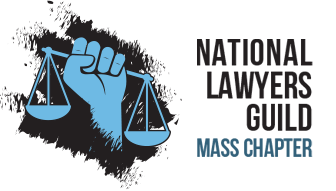2023 Retrospective and 2024 Agenda
Mass NLG fought for police accountability through four public records-based projects in 2023—three of which will continue in 2024. The three continuing projects are comprised of two public records issues about notorious Boston protests involving right-wing extremists and wounded citizens, as well as Mass NLG’s broader inquiry into all complaints against the Boston Police Department (BPD). Further, Mass NLG signed an amicus brief (an argument from someone not a party to a case) in November 2023 for the case Eric Mack v. Off. of the Dist. Att’y of the Bristol Dist., No. SJC-13468, in support of the plaintiff as he fights for public records on a police misconduct investigation.
Attorney fees and the Straight Pride Parade records issue.
The Straight Pride Parade of August 31, 2019, was, to the say the least, a high-profile event. Having been organized by the anti-LGBT+ group Super Happy Fun America, pro-LGBT+ counter-protesters met the parade on Boston streets. Many alleged that the BPD were harsh to the targets of extremist hate and turned a blind eye to the raucous behavior of Super Happy Fun America. The apparent politicization of the BPD and stories of police violence peaked Mass NLG’s attention. Mass NLG submitted its public records request to further understand what happened on June 25, 2020.
A couple years, hours of footage, and hundreds of documents later, Mass NLG plans to move for attorney fees. Attorney fees are baked into Massachusetts’ Public Records Law, disincentivizing misconduct by showing the government that if you wrongfully withhold now, you might have to pay for doing so later. Lawyers facing a motion for attorney fees generally contest several questions: Does the party asking for fees qualify for them? To what extent can the prevailing party’s timesheets be trusted? Were the detailed activities relevant? How many of those hours were reasonably spent on the case? And lastly, what is an hourly rate appropriate for each worker? Soon, those questions may be in a judge’s hands.
Patriot Front records analysis.
The Straight Pride Parade of 2019 is not the only event from recent years staying on Mass NLG’s radar. July 2, 2022, saw the Patriot Front March run through Boston—during which marchers attacked a black man, Charles Murrell III, in their path. Patriot Front is an overtly racist organization, contending that the United States ought to be for white people alone. The leader of Patriot Front both during its Boston march and now, Thomas Ryan Rousseau, was the de facto leader of Vanguard America during its infamous “Unite the Right” rally in Charlottesville, Virginia, in which a car is shown on video plowing into counter-protesters and killing Heather Heyer. In the lead up to the Boston march, Patriot Front members crossed state lines, took the T, and acquired riot shields waiting for them in a truck at a rendezvous point.
Given the connection between Patriot Front and Vanguard America (and the BPD’s plentiful attention to other demonstrations), you’d think that BPD would have had more of a presence on the streets for this event. However, law enforcement presence was sparce, thus leading to the question: was the Patriot Front truly off BPD and the Boston Regional Intelligence Center’s (BRIC’s) radar—or were authorities aware of the march and simply dropped the ball? To answer these questions, Mass NLG submitted a public records request on October 8, 2022.
BPD and BRIC first released documents under this request in September of 2023. Mass NLG will analyze the production for defects and see whether the narrative told by BPD representatives in the media matches BPD’s own public records.
BPD Internal Affairs data project.
Internal Affairs is a department within the BPD that adjudicates complaints against the department. While citizens can bring complaints in the usual sense, presenting a civil case to a court, Internal Affairs departments are another mechanism through which citizens might motivate change. Some advantages to only presenting a complaint to Internal Affairs is the greater expedience and potential lesser level of stress compared to suing the BPD, however the disadvantage is asking a bureaucracy to scrutinize its own conduct. Citizens, of course, can lodge both a complaint through Internal Affairs and the court. BPD handed over many Internal Affairs complaints from 2011-2020 to Mass NLG, thereby giving Mass NLG new insight into the practices of both specific officers and the BPD as a whole.
Mass NLG wants to understand the prevalence of a variety of accusations (such as racial bias and excessive force) and whether the BPD is downplaying what citizens really accuse the department of by failing to categorize their complaints appropriately. Mass NLG also wants to know which and how many accusations are being “sustained,” found valid by Internal Affairs.
Mass NLG has partnered with the Boston University Spark! program (BU Spark!) for years now, an innovation lab in the faculty of computing & data sciences geared towards real world outcomes (https://www.bu.edu/spark). BU Spark! students and faculty meet regularly with Mass NLG members to discuss this project’s goals and methodology, as well as the nature of the data. Mass NLG and BU Spark! regularly underscore their commitment to analyzing the data as fairly and reasonably as possible.
The focus of the Fall 2023 partnership between Mass NLG and BU Spark! was to finalize correlations of interest and analytic methods. Mass NLG and BU Spark! evaluated using an AI-assisted approach to data analysis. The role of AI in this aspect of the project would be to direct the attention of human reviewers to cases flagged by AI through keywords associated with a kind of allegation, like racial bias. Human reviewers then determine if the case summary, when read as a whole, constitutes the allegation the keywords relate to. This process allows Mass NLG to see if the BPD’s own categorization of complaints truly recognizes what citizens allege against it.
Common through-lines: BPD, BRIC, and the Public Records Law.
None of these projects would be possible without a functioning public records law. The Freedom of Information Act (FOIA) played no direct role in the production of documents for these projects. FOIA is Section 552 of Title 5 of the United States Code (5 U.S.C. § 552), a federal law. However, BPD and BRIC are state agencies, even though BRIC in particular works closely with the federal government. Thus, Mass NLG submitted records requests under state law for each project—Chapter 66, Section 10 of Massachusetts’ General Laws (G.L. c. 66 § 10), known as the Public Records Law (PRL).
The PRL imposes strict deadlines on state agencies, who have between a minimum of 10 business days and a maximum of 35 to respond with documents. The flexibility in the law is a compromise between the needs of public agencies to attend to their work on feasible timelines and the public’s interest in timely insight into government workings. Truth, trust, and accountability are ultimately the point of the PRL.
Why should government agencies respect public records laws—and how would anyone know if they don’t?
When government agencies say they don’t have a certain record or any more of a certain kind, it is in their own interest to really mean it. Government agencies can try to argue an exemption from the duty to produce documents applies. However, what an agency should not do—for legal, moral, and pragmatic reasons—is wrongfully misrepresent that that no documents exist or that an exemption applies. Agencies that make such misrepresentations may simply loose on the assertion in court or face whistleblower allegations and serious punishment in more severe cases.
Nevertheless, some PRL violations are easier to identify than others. Compliance with a PRL’s timeline is relatively easy to adjudicate. The production of records and relevant emails are timestamped. Lawyers also have some solid basis to haggle over the application of exemptions. After all, there needs to be some representation of what a document is to argue it’s covered by an exemption. However, belief in an agency appropriately representing that certain documents don’t exist is more ephemeral. How would you really know if something doesn’t exist? Yet, there are also reasons to think that agencies are incentivized to be truthful and diligent by whistleblower laws. As with many things, belief in the integrity of the PRL is a mixture of faith and reason. Thus, any weakening of the PRL could erode government trustworthiness. Unfortunately, that’s exactly what might happen.
Civil rights attorneys respond to trouble on the horizon for the Public Records Law.
The NLG’s numerous public records-based projects into police accountability may give off the impression of the Public Records Law as strong and stable legislation. The fight for our rights, however, is seldom so simple, as Andrew Quemere demonstrates in a thorough overview of the PRL’s latest challenge here. District Attorney Quinn of Bristol County will test a 2020 amendment to the PRL stating that the “privacy exemption” from having to produce records cannot be used to hide records about law enforcement misconduct investigations. The idea behind the “privacy exemption” is that the government does not have to produce a document that would unduly invade an individual’s privacy. The 2020 law makes clear that concerns for an officer’s privacy cannot be used to hide a matter that is otherwise of public interest—law enforcement misconduct investigations.
That hasn’t stopped District Attorney Quinn from going all the way to the Supreme Judicial Court of Massachusetts (the highest state court in the Commonwealth) with an argument that stretches the law passed the point of believability. Attorney Quinn argues that Internal Affairs investigations into misconduct are not “misconduct investigations” when they do not uphold a finding of misconduct. Thus, Attorney Quinn argues, as long as the internal investigation did not find misconduct, the privacy exemption applies, and the investigation can remain secret; the public has no right to check the work of the police if a police department itself says nothing went wrong.
If you think Quinn’s argument is twisting language too far, many lawyers would agree. Mass NLG signed onto an amicus brief with Lawyers for Civil Rights Boston, which argues against the District Attorney’s position. The brief makes clear that the 2020 law closed the “privacy exemption” loophole which could deny the public its right to get law enforcement misconduct records. As of November 21, 2023, the Supreme Judicial Court was set to hear arguments on December 6, 2023.



